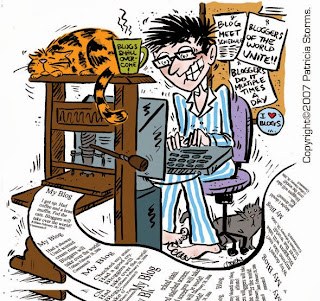That pretty much wraps it up for me right there.
BTW, how are you all? It's been a while since I posted something here. School is over now, though, so…. yeah. I'm doing well, thanks for asking.
So my word count for this November was… subpar.
(BWAHAHAHAAAA! Who are you kidding, Watzzit? It was TERRIBLE!)
It wasn't THAT bad. I mean…
(Shall I recite it for your readers? Let them be the judge of that?)
Uhhh… I really don't think that's necessary, mysterious voice in my head. Is that you, Jenny?
(5,471)
…
(…)
…
(…)
I told you not to do that. Seriously, though. Ethan?
(No, you pooter.)
…Rachel? Shirla?
(IT'S SER YOU IDIOT!)
Oh, wow. Hi Ser. You usually don't talk to me.
(That's because you're usually too busy being a class-A moron.)
Why, thank you.
(Not a problem. Now, about your pathetic word count.)
We don't talk about my word count. That's none of your business; it's not even your book.
(THAT'S WHY I'M UPSET!!)
Oh. I guess that makes sense.
(Stop changing the subject.)
Sorry.
(Did you even try this November? I mean, that's barely 10% of your word count goal! If only you had made an effort! I mean…)
Hey, I didn't see you doing much when you were writing your Master's Thesis on energy wavelengths a few hundred years back. School does things to us.
(For your information, while I was writing that paper, I was also flossing, cleaning my dorm, fighting a demon from the Underrealm, giving a man open heart surgery, supervising a magic-probe into the uncharted seas, and playing Kingdom Hearts on my 3DS. Simultaneously.)
Well, we can't all be amazing.
(*snicker snicker*)
Anyways, as I was explaining to my readers before you so rudely interrupted…
(Rude interruptions are my specialty.)
…Failure is something we learn from. Like a hard test in school, or a bad sports game. When we fail, we shouldn't berate ourselves, or get upset, or curse life and everything about it. Instead, we come up with…
EVIL PLANS!!!
So here's my EVIL PLAN to do NaNoWriMo next year.
1) Pick some other month besides November to do NaNo in (such as July or June, when I have no school)
2) Do NaNoWriMo in that month
3) Win NaNoWriMo in that month
4) In November, upload previously-finished novel and win
5) This is not cheating because NaNoWriMo does not stand for National November Writing Month. It stands for National Novel Writing Month. Nowhere is November mentioned.
IT'S FOOLPROOF!!!!

Now that I've scared all the small children away….
Don't feel so bad if you didn't make it to NaNoWriMo greatness this year. There's always next year. Plus, who said we need an excuse to write, anyways? I, for one, will write my little heart out all year.
Booyah.
That is all.
Watzzit Tooyah
(P.S. Tell him to write about ME more, readers! It gets lonely and cramped in his tiny mind.)














